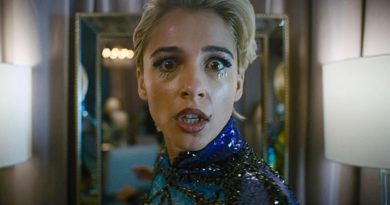Oscars 2018 Review: Darkest Hour
Darkest Hour chronicles around Winston Churchill’s (Gary Oldman) early days as a newly-elected prime minister to address the imminent threat during the World War II era in 1940.
Christopher Nolan has already done a great job in his unique cinematic re-telling of the legendary Dunkirk evacuation in Dunkirk. The critically-acclaimed and financially-successful WWII movie has even secured 8 Academy Awards nominations including Best Picture and a first-ever Best Director for Nolan himself.
In Darkest Hour, this is yet another movie that touches on the Dunkirk evacuation. But instead of focusing on the actual evacuation itself, director Joe Wright dramatises the historical event mostly in the confines of the war rooms, with Prime Minister Winston Churchill and high-ranking government officials making hard decisions on laying out strategy and solving the war situations from the impending Nazi invasion to the aforementioned Dunkirk evacuation.

A chamber piece like Darkest Hour tends to be little on action but heavy on dialogue, which might put impatient viewers to sleep or those with short attention spans feeling bored. This is especially true if the movie itself fails to engage. Take Steven Spielberg’s Lincoln, for instance. That misguided effort happens to be a chamber piece as well, which also revolves around backroom politics during the crucial historical event. Unfortunately, despite the calibre of Spielberg and legendary actor Daniel Day-Lewis in the acclaimed title role, Lincoln was a huge disappointment. Among the biggest reasons of all? Three words: drab, lifeless and static.
Thankfully, none of these three setbacks occurs in Darkest Hour. Sure, the movie does drag on several occasions. But Wright knows how to make his picture lively even for a generally talky movie. His frequent uses of long takes, crane shots, dramatic close-ups of Churchill and other cinematic flourishes like POV tracking shots of people in the streets of London, are brilliantly incorporated altogether to amp up the overall tone and feel of the movie.
At the core of Darkest Hour is Prime Minister Winston Churchill, played to engaging perfection by the unrecognisable Gary Oldman in heavy prosthetics. Acclaimed make-up artist Kazuhiro Tsuji certainly deserves a praise for fulfilling Churchill’s convincingly pudgy look on Oldman. Speaking of Oldman, this is among his finest performance to date. His trademark showy mannerism is on full display here and he even successfully captured Churchill’s sharp wit as well as his eccentricity and sarcastic one-liners. He is no doubt the heart and soul of this movie, as he commands every scene he appears on the screen. He’s like a one-man show himself, and it will be a total insult if the Academy Awards fails to honour him a Best Actor victory come Oscar time in March.

Despite Oldman’s scene-stealing performance, the supporting actors are equally praiseworthy. Kristin Scott Thomas brings a fine support to her otherwise thankless role as Churchill’s devoted wife, Clementine. Other actors including Lily James as loyal secretary Elizabeth Layton, Ben Mendelsohn as King George VI alongside Ronald Pickup as disgraced former prime minister Neville Chamberlain and Stephen Dillane as war cabinet member Viscount Halifax, are each given sufficient rooms to make enough positive impressions with their respective roles.
Nominated for 6 Academy Awards including Best Picture and Best Actor for Gary Oldman, Darkest Hour may have been flawed but remains one of the best historical dramas involving the celebrated Prime Minister Winston Churchill.





